Exploring the Pros & Cons of BCAA: What Every Bodybuilder Should Know About Branched Chain Amino Acids
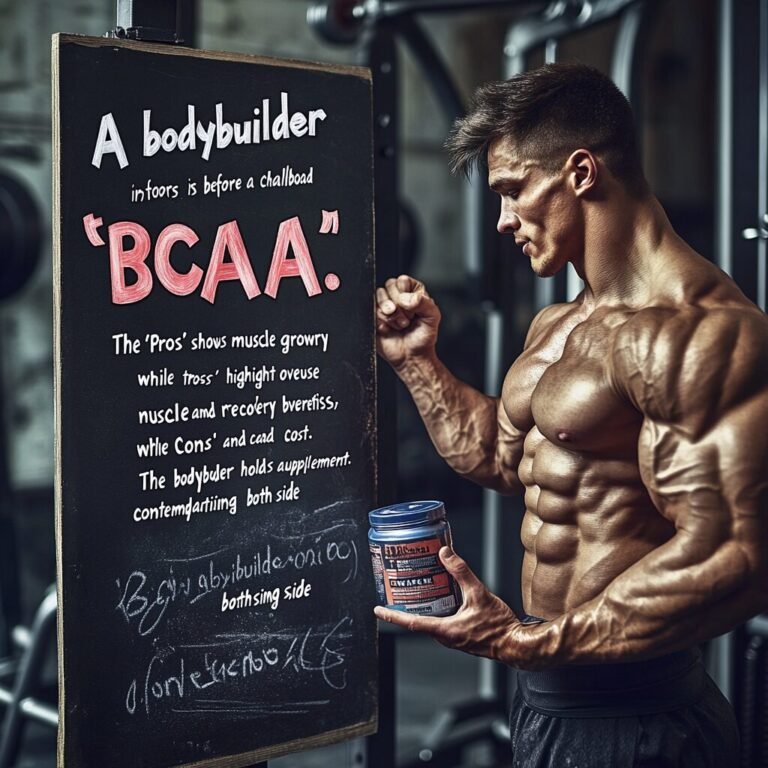
Supplements play a major role in bodybuilding with BCAA being one of the most significant supplements. When you read on the Pros and Cons of BCAA for Bodybuilders, you will note that BCAA entails leucine, isoleucine, and valine, which are essential amino products that are pivotal in muscle building, energy during the workout as well as the post-workout recovery process. Awareness of these pros and cons assists the athletes to improve the manner in which they perform as well as aid them in the process of healing.
Amino acids are responsible for building muscles and serving energy, growth, and recovery. Amongst them, BCAA has a very significant role in muscle development. Whether you’re doing weight training or cardio, anyone who workouts can achieve desired results in less time and better fight fatigue by understanding how BCAA works.
What are BCAAs?
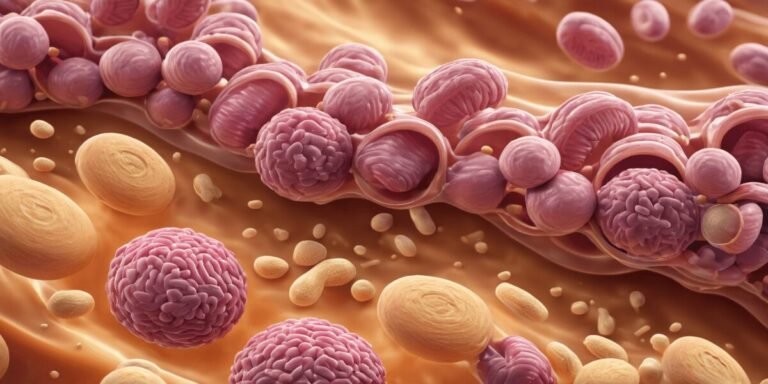
BCAA is an abbreviation for Branched-Chain Amino Acids and refers to the general name of three amino acids that are nutritional requirements: leucine, isoleucine, and valine. They become very important in the creation and recovery processes of muscles. Unlike other amino acids processed in the liver, the BCAAs are metabolized mostly in the muscles, especially during heavy exercise.
In the Pros and Cons of BCAA for Bodybuilders, one key benefit is BCAAs’ ability to quickly bypass the typical absorption process. This speeds up recovery by reducing post-exercise catabolic activity, lowering cortisol levels, and increasing insulin secretion.
Bodybuilders consider BCAA invaluable because it causes mTOR activity which is one of the determinants in the growth of muscles. Post intense workouts, it aids in the recovery and growth of the muscles. And there is quite a bit of research that supports BCAA use for progress and performance enhancement in athletes.
BCAAs provide a deeper appreciation of their place in the program of any aspiring bodybuilder. Their profile is different from the profiles of all the other amino acids which is why they rank among the key factors to achieving enhanced recovery and performance after exercises. It is for this reason, BCAA is often regarded as the edge that most fitness user do not miss.
BCAA Pros for Bodybuilders

BCAA is a necessity for bodybuilders. It speeds up the rate your muscles recover and prepares them for the next workout with less soreness. Immediately following a grueling session of weight training, BCAAs will rapidly take the ache out of your tired muscles. They get to work right away repairing muscle tissue and reducing the soreness that usually follows hard, heavy exercise.
Intake of BCAAs is essential for recovery and further building towards your muscle. Whenever your muscles experience weight training, they experience microscopic tears and recover with protection from further damage. Leucine is able to do most of the heavy lifting through promoting pathways that enhance muscle creation and their repair. The incorporation of BCAAs into your fitness routine will enable you to gain mass and strength in a shorter time compared to non-users.
BCAA helps maintain performance levels, especially during long exercise sessions by minimizing fatigue. It suppresses brain serotonin levels, which helps delay the feeling of fatigue. For example, when you perform sets of hard squats or deadlifts, BCAAs help you complete these exercises without getting exhausted easily. Increased stamina makes individuals stronger and they will be able to do better in terms of overall performance.
Post BCAA supplementation, it will become quicker to recover from hard leg sessions and maximal strength will be developed as protein efficiency will be improved. This in itself, could make one workout less tedious and more effective in terms of time needed to achieve the fitness goals.
Potential Cons of BCAAs

It is important to weigh the benefits of using branched-chain amino acids (BCAAs) in bodybuilding. While they are effective, specific consumers may suffer from side effects such as bloating or nausea. Taking more BCAAs than required can mean taking more leucine than needed, which may unbalance BCAAs with other essential amino acids and rather demoralize the process of recovery than support it.
Most lifters view BCAA supplements as an easier way to improve performance and muscle gain. Meanwhile, they will sometimes disregard proper nutrition and whole foods. Some of them would substitute BCAAs for complete proteins, when they should be taking advantage of the extra recovery nutrients whole foods provide. Inability or failure to consume the right nutrition is what could delay long-term progress and development.
The key to your success will be in the balance between diet and supplementing. Supplements are great to help further progress, but they don’t take away from healthy meals. Your lean meats, eggs, legumes, and dairy will give you any essential nutrients you need for the day. Such a combination of a good diet and specific supplements will surely guarantee better results, since one product alone cannot be relied upon by your body for its results. A wholesome approach supports muscle growth, overall health.
Optimal Timing for BCAA Intake
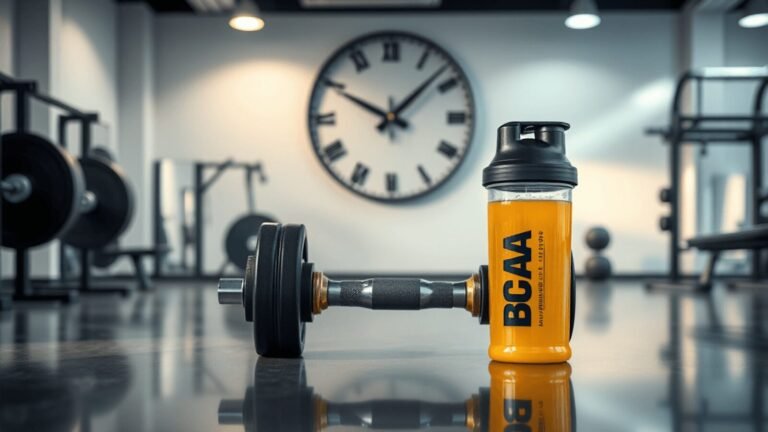
Timing of BCAA’s is important in the process of bodybuilding. Another way of using BCAAs is loading them before the course that puts your muscles under stress. It also helps to build up the stamina and strength in you hence enhancing the energy levels in your body. A drink containing carbohydrates together with BCAA should be taken 20-30 minutes before exercising to improve the readiness of muscles and their efficiency.
BCAA is for post-workout recovery and fixes those microscopic tears in the muscles, better known as being sore. Within that 30-minute window after exercise, taking BCAA is like putting fuel in your race car-faster recovery and replenishing energy stores. Consuming BCAAs with food that contains a high level of protein allows for better repair of muscles.
Aim for 5-10 grams of BCAAs before and after workouts daily. This is the amount recommended by many personal trainers, since it may be sufficient to achieve all the benefits without overusing them. Make sure to supplement consistently but as part of a well-balanced diet for efficiency and overall health.
With the Pros and Cons of BCAA for Bodybuilders in mind, taking BCAAs pre- and post-workout can lead to better results, reduced fatigue, and less muscle soreness. Bodybuilders can make informed choices on when to use BCAA to achieve their ideal physique.
Natural Sources of BCAAs

Taking BCAA supplements into your daily diet also increases muscle mass. Protein foods like Chicken breast, Tuna, and Lentils are also rich sources of leucine, apart from being energy-giving and helping in muscle building. Tasty, mouth-watering, juicy grilled chicken is one of the best meals and strengthens one. Eat these foods in your meals to supercharge your workouts and help muscles to recover faster.
Concerning the source of proteins, animal-derived proteins, as well as plant-derived proteins, are greatly appreciated. Animal proteins, such as beef and eggs, contain all essential amino acids and a higher concentration of BCAA. Plant proteins, such as quinoa and soy, house essential BCAAs, too. Having meals like a cheesy omelet or quinoa salad with fresh vegetables will ensure your nutrients support your muscles.
For delicious and healthy meals rich in BCAA, try fusing flavors and ingredients that help your body in the most useful way. The poached egg on the bed of sautéed garlic spinach is an excellent combination for muscle recuperation. In the meantime, hearty vegan chili with black beans and kidney beans, flavored with cumin and cayenne pepper, helps rebuild muscles after exercise with protein. Looking into natural BCAA-rich foods will help in studying more meals that will help toward your fitness goals.
Personal Trainer Insights on BCAAs
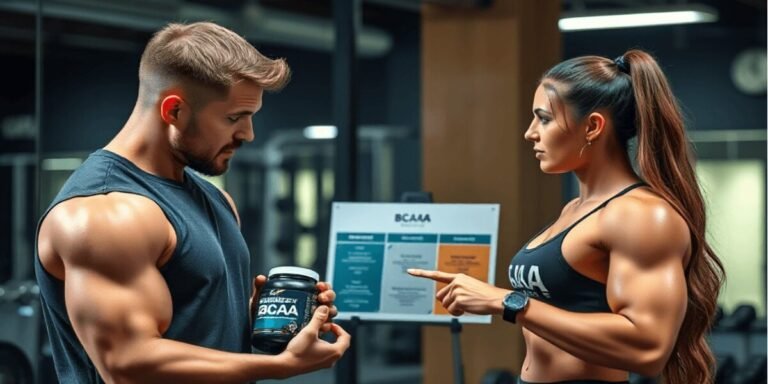
Fitness gurus point out that branched-chain amino acids (BCAAs) are essential for bodybuilding foods that support muscle repair and development. That is why trainer Samantha Reyes continues to emphasize BCAAs’ importance, not referring to them as supplements for athletes but as boosters of performance. She also points out that they can decrease pains when you wake up and help your body to rebuild after stressful exercises which makes them very essential for beginners and amateur body builders or athletes.
BCAAs must be taken as part of a balanced training regimen that gives the best results based on trainers’ advice. BCAAs can be taken together with other healthy practices, particularly in the workouts, according to certified strength coach Jake Lin. Carrying BCAAs around your workouts, proper hydration, eating carbohydrate for energy, and proper sleep are among some of the things that go a long way in putting up a great body, he reasons. You should make supplements an integral component of reaching your fitness goals through this set of measures.
Thus, it is apparent that the presence of real-life cases teamed up with fitness professionals gives a more holistic perception apart from the structural aspects. Specialists and dedicated weight lifters show that BCAAs can serve bodybuilders well as a powerful tool in an effective strategy when integrated into the overall bodybuilding plan.
BCAA Supplements Ultimate Guide
BCAA Supplements
Conclusion: Harnessing the Power of BCAAs Wisely
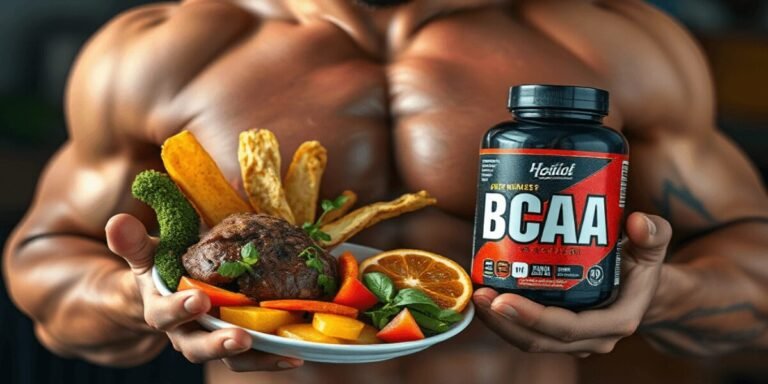
The pros and cons of BCAA for bodybuilders have shown that BCAA is very useful in several ways, such as helping to recover muscle mass, reduce fatigue, and improve performance during rigorous exercises. Of the amino acid fragments of BCAA, leucine, isoleucine, and valine show great potency in muscle development and regeneration.
BCAAs should be taken together with the proper diet and not with reliance on the supplements alone. The best-attested combinations are whole foods with an appropriate supplementation program, as the results are better than using supplements alone. The best approach to BCAA usage is still important because it will help you achieve your fitness goals in the easiest way possible.
Pros and Cons of BCAA for Bodybuilders FAQs
Q: What are BCAAs?
A: BCAAs (Branched-Chain Amino Acids) are three essential nutrients—leucine, isoleucine, and valine—that support muscle growth, recovery, and workout energy.
Q: How do BCAAs help bodybuilders?
A: BCAAs speed up muscle recovery, reduce soreness, and improve protein use for faster muscle growth and better endurance.
Q: When is the best time to consume BCAA’s?
A: For endurance, take BCAAs 20-30 minutes before exercise or right after to aid muscle recovery and reduce soreness.
Q: What are the side effects of branched-chain amino acids?
A: Negative impacts associated with excessive consumption of BCAAs include swelling, nausea and amino acid intolerance.
Q: Can BCAAs drill down to replace whole foods?
A: You shouldn’t use BCAAs to replace whole categories of foods; instead, take them alongside a proper meal.
Q: For endurance do BCAAs enhance it?
A: Yes, you can say that BCAAs aid in exercising for long hours due to the body’s desire for energy.
Q: What amount of BCAA should one consume per day?
A: Usually, the suggested amount of protein consumed is 5-10 grams before, during and after training sessions though one can use the guidelines according to personal preferences.
Q: What are the Pros and Cons of BCAA supplements for Bodybuilders?
A: BCAAs help with muscle recovery, fatigue, and performance but may cause digestive issues and aren’t necessary if your diet has enough protein.
